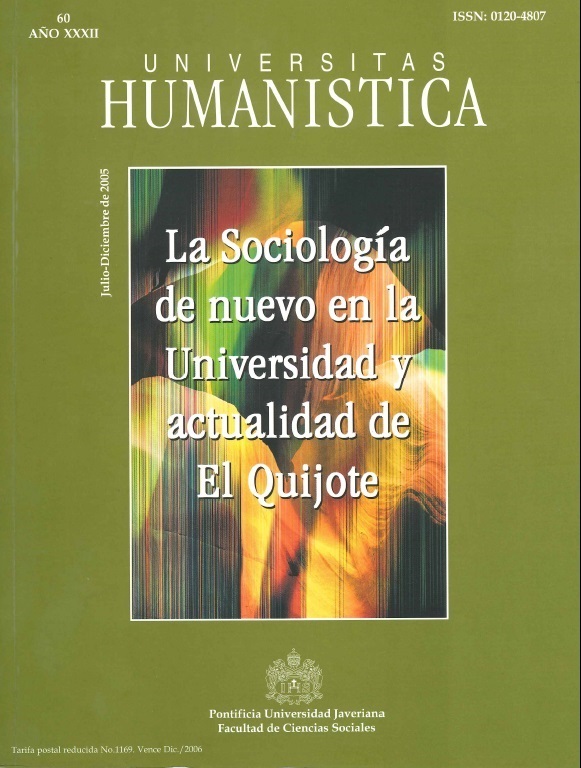Abstract
En la era de la globalización y de multiculturalismo suceden encuentros entre personas de diferentes grupos sociales que cuestionan y re-definen lo que se considera como tradicional y como identidad, haciendo que la gente busque expresar su autenticidad de forma material. Con este artículo se explora como este fenómeno se experimenta en la cultura material, en especial en el caso de la comida y de las cocinas tradicionales, en un lugar multicultural mientras se trata de marcar una identidad social particular. Se analizan los aspectos que están favoreciendo el énfasis en resaltar las diferencias como lo son el capitalismo, la globalización y el movimiento de personas, en la forma de migración y de turismo. Se analiza el tema de los libros de cocina como forma escrita de la transmisión de la tradición y de la identidad cultural. Así mismo se estudia el surgimiento de nuevas propuestas en el mercado para el consumo de cocinas especializadas a la vez que se promueve el consumo de cocinas de fusión.
This journal provides immediate open access to its content on the principle that making research freely available to the public, encourages greater global exchange of knowledge.
The journal Universitas Humanística is registered under a Creative Commons Attribution 4.0 International Public License. Thus, this work may be reproduced, distributed, and publicly shared in digital format, as long as the names of the authors and Pontificia Universidad Javeriana are acknowledged. Others are allowed to quote, adapt, transform, auto-archive, republish, and create based on this material, for any purpose (even commercial ones), provided the authorship is duly acknowledged, a link to the original work is provided, and it is specified if changes have been made. Pontificia Universidad Javeriana does not hold the rights of published works and the authors are solely responsible for the contents of their works; they keep the moral, intellectual, privacy, and publicity rights.
Approving the intervention of the work (review, copy-editing, translation, layout) and the following outreach, are granted through an use license and not through an assignment of rights. This means the journal and Pontificia Universidad Javeriana cannot be held responsible for any ethical malpractice by the authors. As a consequence of the protection granted by the use license, the journal is not required to publish recantations or modify information already published, unless the errata stems from the editorial management process. Publishing contents in this journal does not generate royalties for contributors.


